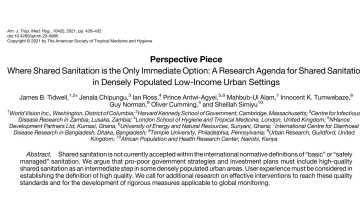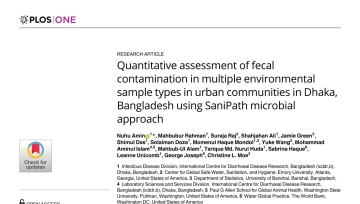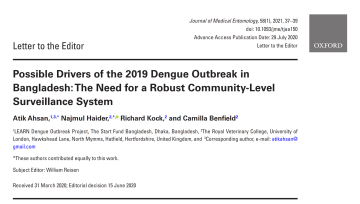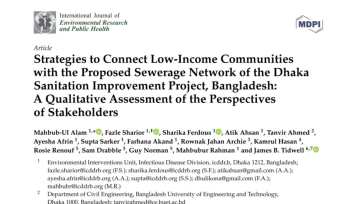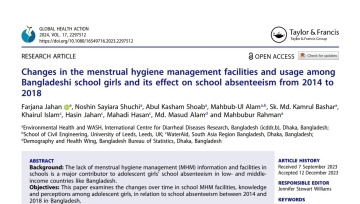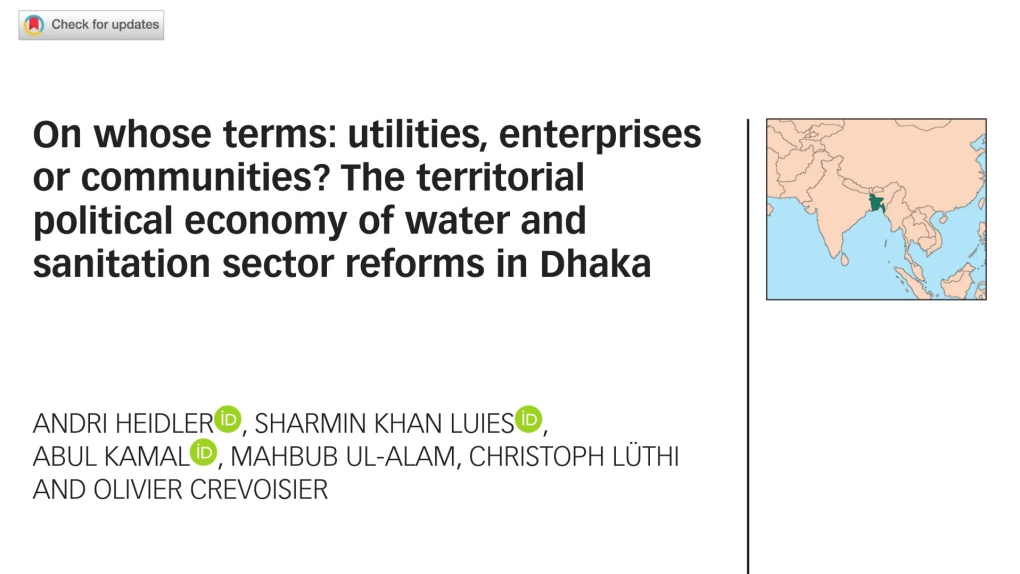
On whose terms: Utilities, enterprises or communities? The territorial political economy of water and sanitation sector reforms in Dhaka

Publish Date: 2023
Citywide inclusive sanitation (CWIS) is becoming the dominant paradigm for achieving safe sanitation for all by 2030. Its technical benefits have been explored, but the bargaining over financial and organizational changes CWIS entails has not yet been adequately addressed. This case study explains the stalled rollout of CWIS in Dhaka, Bangladesh. It analyzes policy pathways over the past 30 years through a combined territorial political economy and power perspective to understand their effects on equality. It highlights how donors link the introduction of CWIS to the organization of sanitation through a market; how the utility uses CWIS as an opportunity to avoid costly responsibilities in non-sewered sanitation; and how service co-production through community-based solutions is neglected. CWIS has successfully overcome the dogmatic technological focus in the sanitation system, but for citywide sanitation to be scaled inclusively, the dogmatic focus in the organization and financing of the sanitation sector must also be overcome.

